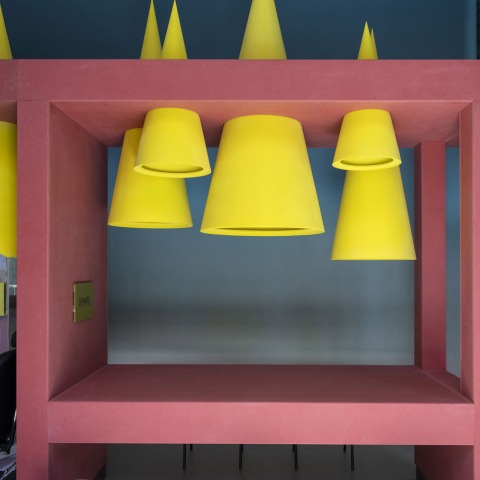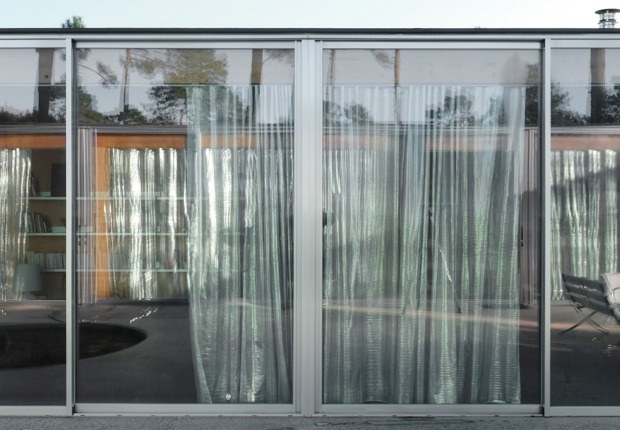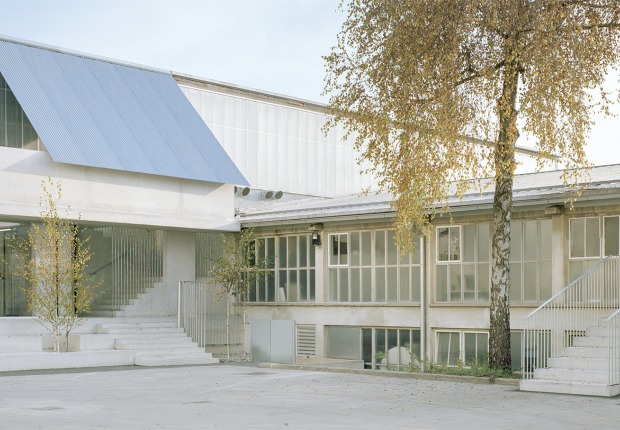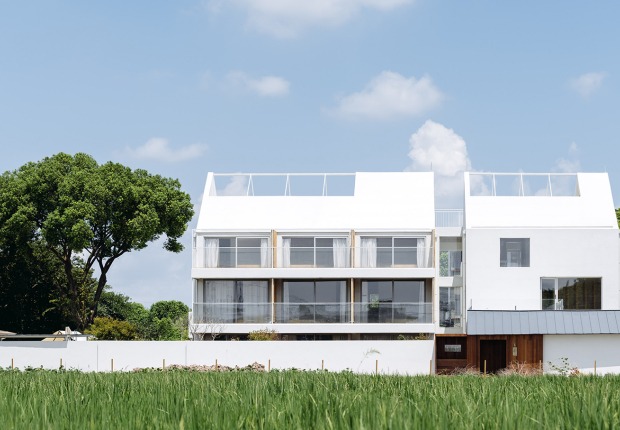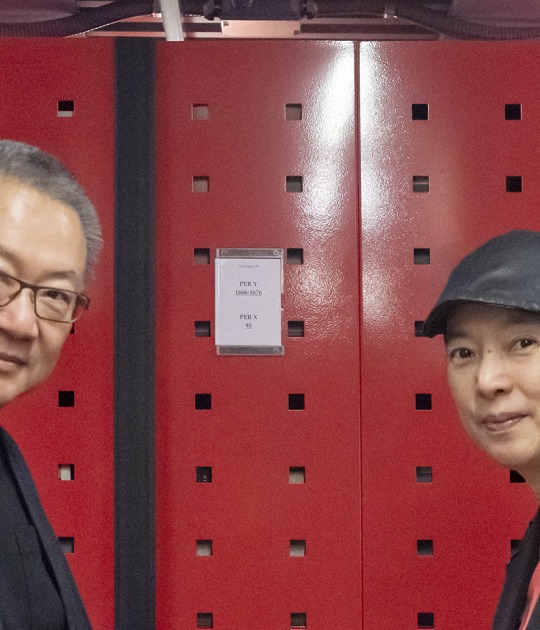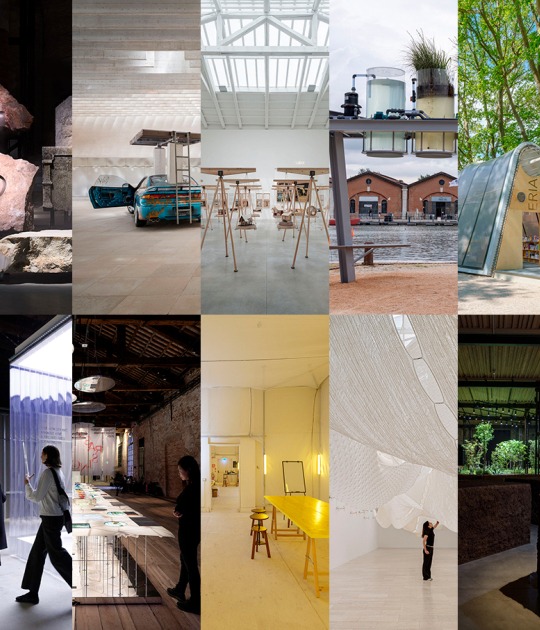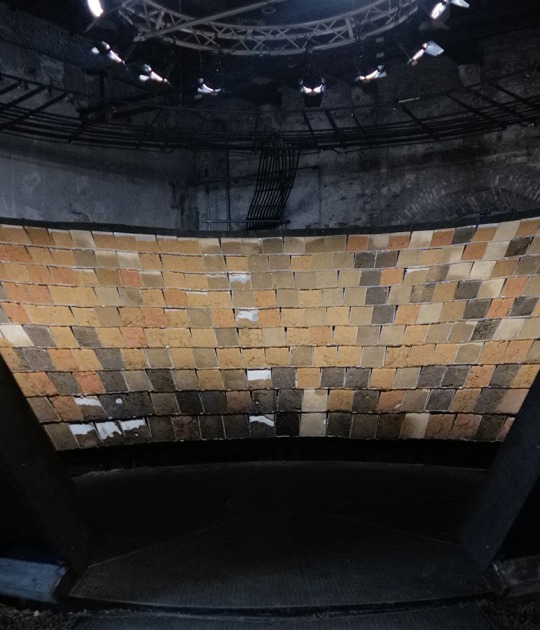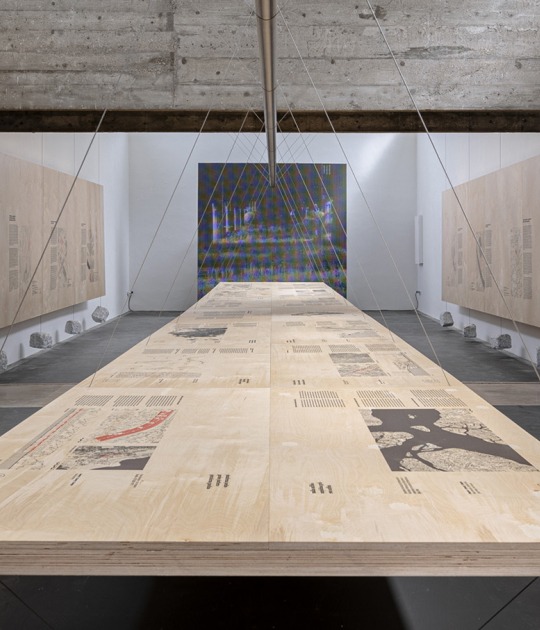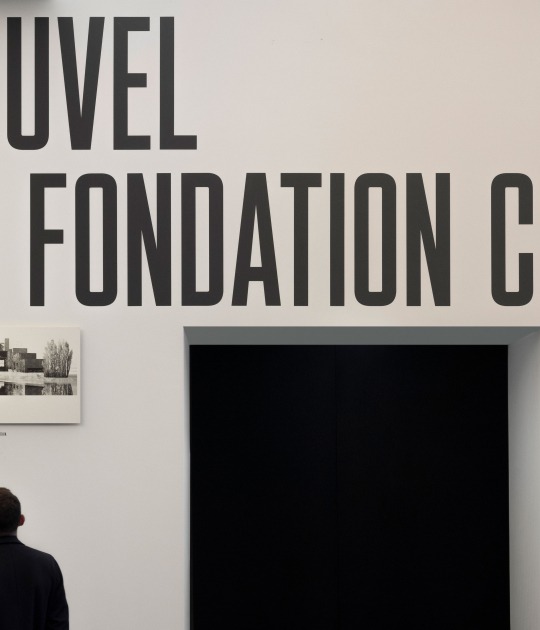The rooms of the British Pavilion are transformed into seven privatized public spaces reinvented as inclusive and immersive experiences to make a critique of their spaces in order to be able to provide strategies to increase the flow of people in their spaces public.
Description of project by Manijeh Verghese and Madeleine Kessler
The British Council is delighted to open its commission for this year’s British Pavilion exhibition at the Biennale Architettura, The Garden of Privatised Delights, running 22 May – 21 November 2021.
Taking inspiration from Netherlandish artist Hieronymus Bosch’s triptych The Garden of Earthly Delights, the exhibition, curated by Manijeh Verghese and Madeleine Kessler, calls for new thinking around privately owned public space in cities across the UK. It challenges the polarisation of private and public organisations and instead poses solutions on how they might work together to improve use of, access to and ownership of public spaces.
In the spirit of Bosch’s triptych, the exhibition explores the UK’s privatised public space as a non-binary issue. As Bosch explored the middle ground of Earth between the extremes of Heaven and Hell, the curators suggest privatised public space also sits between two extremes: the utopia of common land before the Enclosures Act of the 18th century and the dystopia of total privatisation.
The rooms of the British Pavilion are transformed into seven privatised public spaces reimagined as inclusive, immersive experiences. Familiar UK public spaces which are increasingly under threat, such as the youth centre, the high street and the local pub, sit alongside the traditionally inaccessible private garden square. All are overlaid with proposals for how they can be reprogrammed and revitalised. Two proposed new ministries suggest a bottom-up approach to conversations around ownership, of land and facial recognition data, while a private toilet in the pavilion’s basement highlights issues surrounding the most basic of public services.
Within The Garden of Privatised Delights, Verghese and Kessler seek to ensure a range of voices - from young people to politicians - are heard. At once playful and provocative, familiar yet strange, each experience suggests new models for privatised public spaces, prompting visitors to question, debate, and proactively engage with each.
Unlike traditional exhibitions, with architecture represented by models and drawings, the installations within the British Pavilion are designed as simulated spaces. This aims to actively encourage everyone - architects and non-architects alike - to engage and consider how public space design can be improved to benefit the wider community. The experience, woven together by a continuous path as if through a typical British town or city, invites everyone to consider why all public spaces aren’t designed as gardens of delight?
The question is now more relevant than ever. In 2020 the Biennale Architettura – one of the most prestigious architecture exhibitions in the world – was postponed due to the impact of Covid-19. Since then, topics explored within The Garden of Privatised Delights have taken on fresh urgency, further highlighting the importance of accessible public space for all. Themes such as the demise of the high street, a decline in social spaces for teenagers, and debates around facial recognition technology, have become more pertinent, given the business closures, suspension of schools and increase in video conferencing during the pandemic.
The Garden of Privatised Delights aims to generate a much wider conversation around privatised public space, and how increased inclusivity and consultation around its design can positively reframe the vital role public spaces play in towns and cities across the nation. Sevra Davis, Director of Architecture, Design and Fashion at the British Council and commissioner of the British Pavilion 2021, says:
“The past year has shown that the theme of the 2021 Biennale Architettura, ‘How will we live together?’, is one of the most important questions of our time. The British Council’s commission for the British Pavilion, The Garden of Privatised Delights, explores how we inhabit and share our environment, encouraging new perspectives through debate and dialogue and presenting innovative solutions for how we might interact and support each other. In order to positively navigate our shared future, Madeleine Kessler and Manijeh Verghese demonstrate how great design can improve the inclusivity, accessibility and understanding needed to achieve that.”
Madeleine Kessler and Manijeh Verghese are co-founders of multi-scalar design practice Unscene Architecture. Kessler is a director of Madeleine Kessler Architecture, and sits on the National Infrastructure Commission’s Design Group. She was named in the Architects’ Journal 40 under 40 and a 2019 RIBA Rising Star. Verghese is Head of Public Engagement at the Architectural Association. She is currently an external examiner at Cambridge University and is a member of the curatorial panel for the 2021 London Festival of Architecture.
Kessler and Verghese were selected to represent the UK following an open call by the British Council in 2019, responding to the challenge: ‘What is the most urgent issue facing British architecture today?’ The selection panel, made up of leading architecture professionals from across the UK, was struck by the curators’ ambition to open up the British Pavilion and the Biennale Architettura to new audiences in order to widen access to both the conversation around privatised public space, and the role of architecture in our cities.
The British Council has been commissioning the British Pavilion in Venice since 1937, confirming the British Pavilion as a leading international platform to exchange innovation and ideas around contemporary art and architecture. These commissions echo the wider work of the British Council, to showcase the best of the UK's artists, architects, designers and curators overseas. Manijeh Verghese and Madeleine Kessler on their British Council commission for the British Pavilion 2021:
“We are thrilled to finally be able to share The Garden of Privatised Delights at the British Pavilion in Venice. The events of the past year have further highlighted the importance of accessible public space. This has inspired us, and our amazing team of collaborators, to test collaborative processes and design strategies, in order to propose ways in which public space can become more inclusive. By encouraging everyone to be part of this complex conversation, privatised public spaces have the potential to become genuine Gardens of Delight at the heart of all our towns and cities.”
Five additional teams of designers were invited by the curators to collaborate on their British Council commission: The Decorators; Built Works; Studio Polpo; Public Works; and vPPR.
Themes and challenges explored within The Garden of Privatised Delights include:
Publicani (The Decorators) - could the pub be more than a place for drinking and become a versatile centre for civic action?
Ministry of Collective Data (Built Works) - could we rethink facial recognition technology and free our collective data for public benefit?
High Street of Exchanges (Studio Polpo) - could the high street go beyond commercial interests to become a place of diverse social exchange?
Ministry of Common Land (Public Works) - could we use citizen’s assemblies to develop new strategies for land ownership and use?
Play With(out) Grounds (vPPR) - can we design new spaces in the city for teenagers to occupy on their own terms?
Garden of Delights (Unscene Architecture) - could we open up and reprogramme exclusive garden squares to create more public outdoor space?
